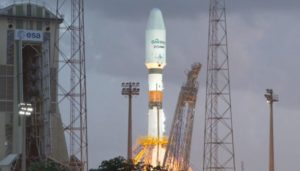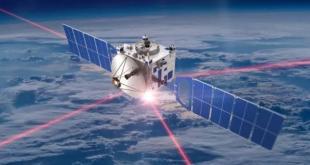
Russian businesses have reportedly bought a majority share of the Russian Joint Venture of OneWeb’s satellite communications megaconstellation for its business operations in Russia. This means that OneWeb should now be able to gain access to Russian consumers, the president of a partner involved in the joint-venture said.
Dmitry Bakanov, Director-General of JSC Satellite System Gonets, said Russian majority ownership of the OneWeb operations over Russia, plus OneWeb’s decision to purchase 21 Russian Soyuz-Fregat launch vehicles to launch the OneWeb satellite constellation, are strong arguments in favour of allowing OneWeb to operate in Russia. OneWeb needs ground stations to receive and transmit signals while the satellites are over Russia.
Russia is developing its own satellites for broadband connectivity through the Gazprom Space Systems – a satellite communications company – and will use Israel’s Gilat for the ground network and terminals.
The first batch of six OneWeb satellites were launched on 27 February 2019 onboard an Arianespace Soyuz launch vehicle from the Guiana Space Centre in French Guiana.
“The share of the Russian side in the joint venture has been brought up to 51 per cent. Information is being exchange between the interested parties to analyse various issues, including security issues and processes related to the first launch of OneWeb satellites are underway,” Bakanov told Russian news site Kommersant. “Negotiations are under way about the possibility of Russian capital participating in OneWeb. The final decision will depend on the outcome of each of these components.”
 SpaceWatch.Global An independent perspective on space
SpaceWatch.Global An independent perspective on space




